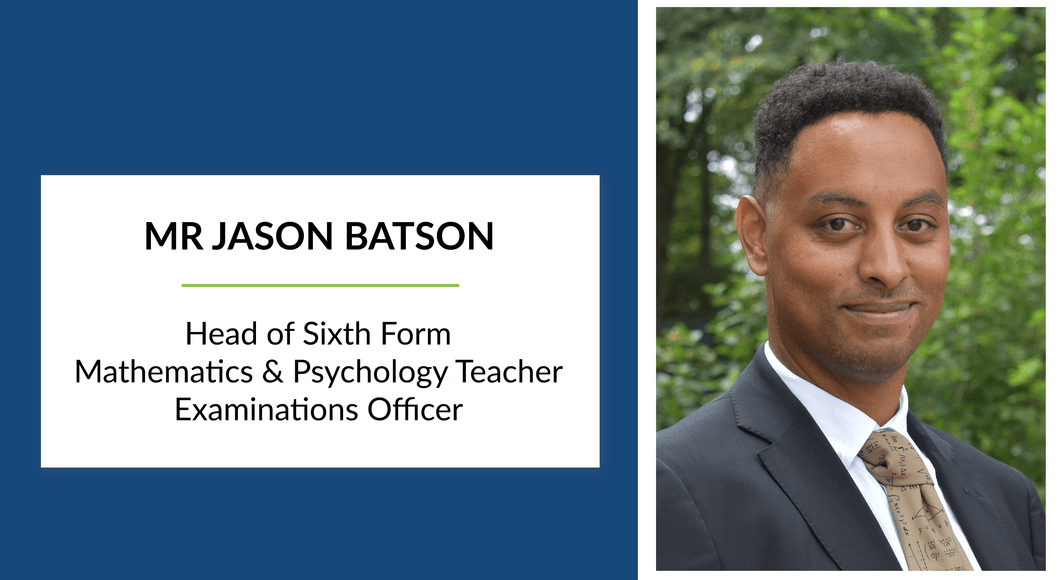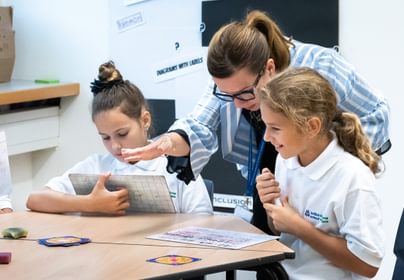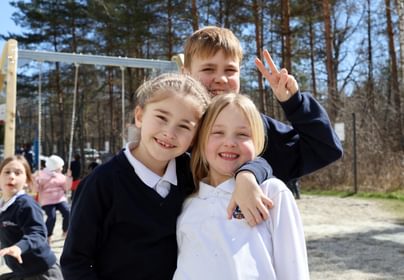In celebration of World Teacher’s Day, this week we focus our new Teacher Feature spotlight on Mr Jason Batson, a longstanding member of the BISL teaching team, who is forever approachable, always enthusiastic about instilling a great passion for learning in his students, igniting their curiosity and supporting them every step of the way as they complete the final challenges of their secondary school education.
Mr Batson gained his BSc in Psychology from Kingston University in London, before undertaking a PGCE in Mathematics at Brunel. Whilst working in England as a Mathematics and Psychology teacher, he added a TEFL qualification to his repertoire and decided to explore more parts of Europe, teaching in Toulouse, Vienna and Barcelona before joining the British International School of Ljubljana in 2010.




How did your journey as a teacher begin?
I began teaching Mathematics and Psychology in a comprehensive secondary school in London which had close to 2000 students. However, prior to that as a student, I had always been the go-to person when I attended secondary school for anyone who was having problems with Mathematics, especially statistics. So, I believe that from about the age of 15, I always knew I wanted to be a teacher. I worked in London for a number of years and during that time, I found myself drawn to teaching gifted and talented classes on the weekends and conducting revision classes during the holidays, especially before IGCSE and A Level examinations. I found that small class sizes allowed for a more tailored approach and it was easier to see the impact I had on students, something that I found difficult in a top set Mathematics class of 35 students. When I first arrived in Slovenia, I kept on teaching, but focused on teaching English, as 16 years ago native speaker teachers were in great demand in Ljubljana. A chance meeting and an opportunity to teach Mathematics at BISL found me returning to my passion and I have never once looked back.
Why did you decide to specialise in Mathematics?
Since I was a student in Year 10, I have found Mathematics both relaxing and enjoyable, but this was not always the case. I struggled to understand Mathematics for years, I was definitely not a natural, but during a particular lesson in trigonometry, which I will never forget, something clicked and suddenly Mathematics made total sense to me. I love that moment, which occurs so often and so suddenly in Mathematics, the moment when a topic moves from unknown to known in a person's mind. Helping to facilitate that shift for students is a source of great joy and I find it very rewarding.
What makes BISL such a unique place to work?
The myriad of skills and talent of the students and staff makes BISL an entirely unique experience. The diverse background and understanding of our students make for an interesting challenge when trying to bring the class to a common level of understanding, and the fact that classes change every year means that you, as a teacher, must approach each year in a new and dynamic way. This is where the many roads that our staff have taken to bring them to BISL becomes an advantage. The sharing of ideas, discussions during break, lunch and after school help me and my teaching methods to stay current, multifarious and effective.
How would you describe a typical day at BISL?
There are no typical days at BISL. Yes, there are routines, scheduled lessons, after school classes but BISL, its students, and staff create an ever-changing environment. However, one typical thing I can say is that I cycle to and from school every day, with a smile on my face, no matter the weather.
Why is the experience of an international education important for a student?
It is important for students to see the world as a place to explore without fear or trepidation. Meeting students (and teachers) from all over the world and finding, often to one’s surprise, the common traits, values and goals that we all share allow students to understand that the world is a lot smaller, ideologically-speaking, than they might have once believed. Inside the classroom, within the subjects, students are exposed to a wide variety of culture, societies, international experiences and languages. But more so than that, international education is about mobility and options. Life is so interesting when you venture past the borders of your own town and an international education is not only the passport to far off places, it is also the vehicle that will take you there.





